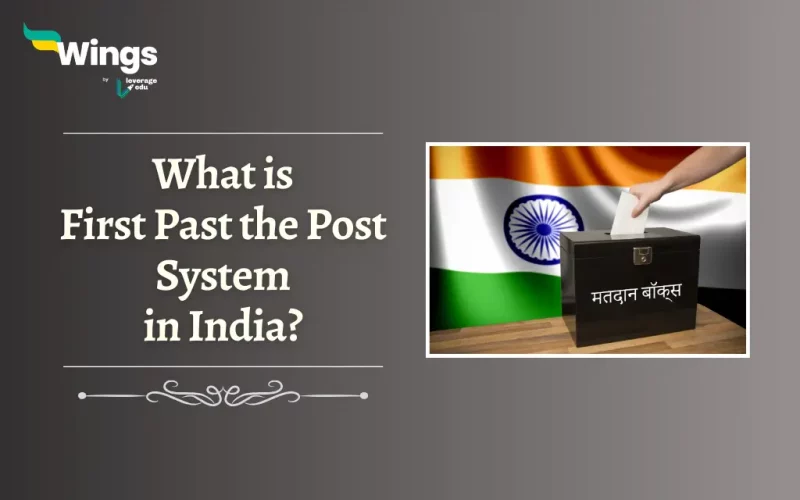It is a way of Election wherein the voters have to cast a vote and the candidate with the maximum number of votes is announced as the winner. The First-Past-the-Post System is commonly referred to as FPTP or FPP. Additionally, it is a straightforward system where a candidate with the maximum votes wins. Moreover, the nation in this system voting is divided into small units called Constituencies. Furthermore, the candidate is elected in these Constituencies with a maximum number of votes being given to the voter. The top First-Past-the-Post System Examples of countries are India, the UK, Canada, etc. Read on to learn more about the First-Past-the-Post System in India, its important terms and its Advantages and Disadvantages!
Important Terms for the First Past the Post System
Additionally, to understand the concept of First-Past-the-Post System Elections, there are common terms that make it easy to learn:
| Important Terms of First-Past-the-Post System Elections | |
|---|---|
| Term | Definition |
| First-Past-the-Post (FPTP or FPP) | An electoral system where voters cast a vote for a single candidate, and the most votes wins. |
| Plurality Block Voting | Similar to FPTP, but for multi-winner contests. |
| Plurality System | The winner needs only a plurality of votes, not an absolute majority (greater than half). |
| Single-Member Plurality (SMP) | The formal name for FPTP is used in single-member districts. |
| Choose-One Voting | An informal term for FPTP, contrasting with ranked or score voting systems. |
Also Read: Why Do We Need Two Houses of Parliament?
First-Past-the-Post System Advantages and Disadvantages
Moreover, the First-Past-the-Post System Election System might sound easy and fair, but it comes with its own set of Disadvantages and Advantages:
| First-Past-the-Post System Advantages and Disadvantages | |
| Advantages | Disadvantages |
| Close tie between MP and constituency | Voters’ votes might get “Wasted” in the “Safe Seats” |
| Tends to produce a majority for the party that gains the most seats | Candidates’ proportion is not in proportion to cast votes. |
| Little need for a coalition and a much more stable government | Seats secured by a govt might be more than the votes gained. |
Related Blogs
| Here’s How the President is Elected! | Electoral Politics |
| Essay on Voting for School Students | What is the Full Form of VVPAT? |
| What is the Full Form of EVM? | Representation of People’s Act |
This is everything about the First Past the Post System along with its Advantages and Disadvantages. For more content related to the different states of India, visit our Civics and Polity archives.
 One app for all your study abroad needs
One app for all your study abroad needs













